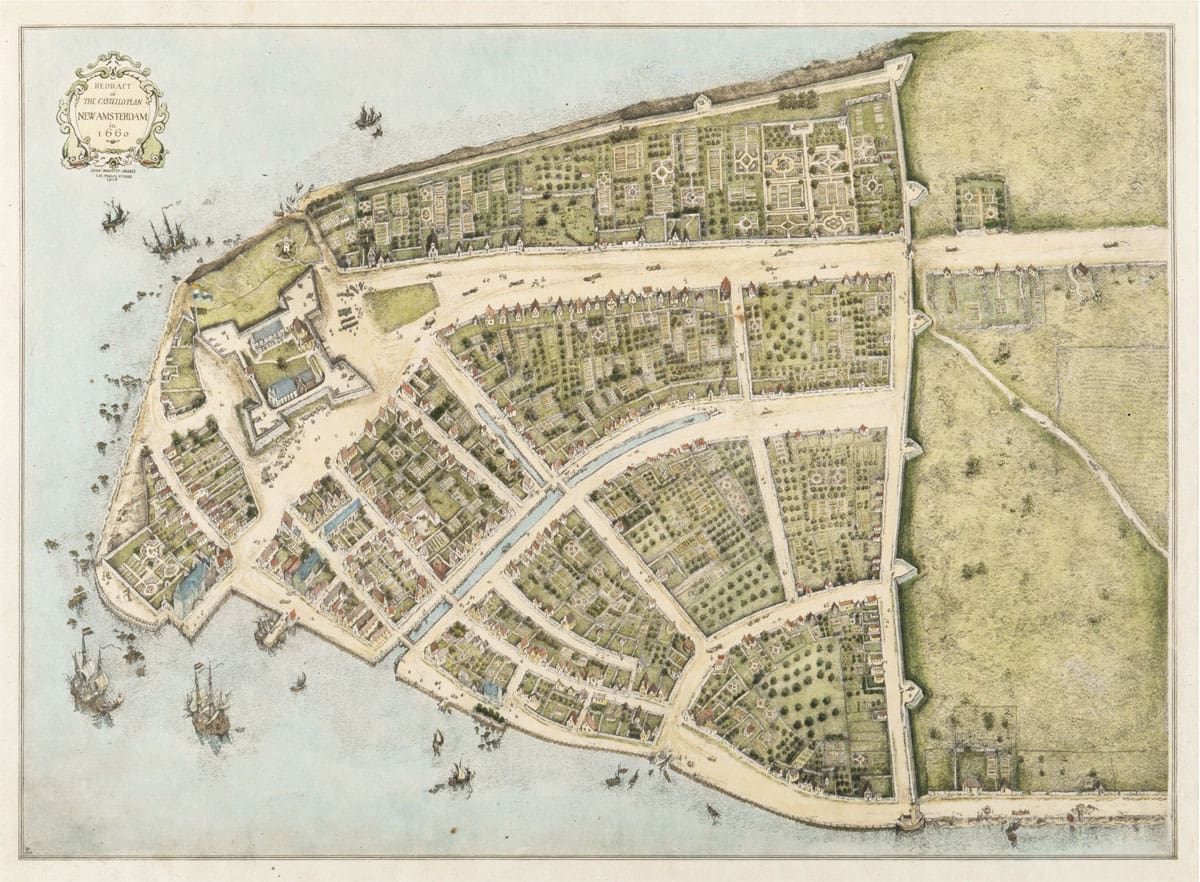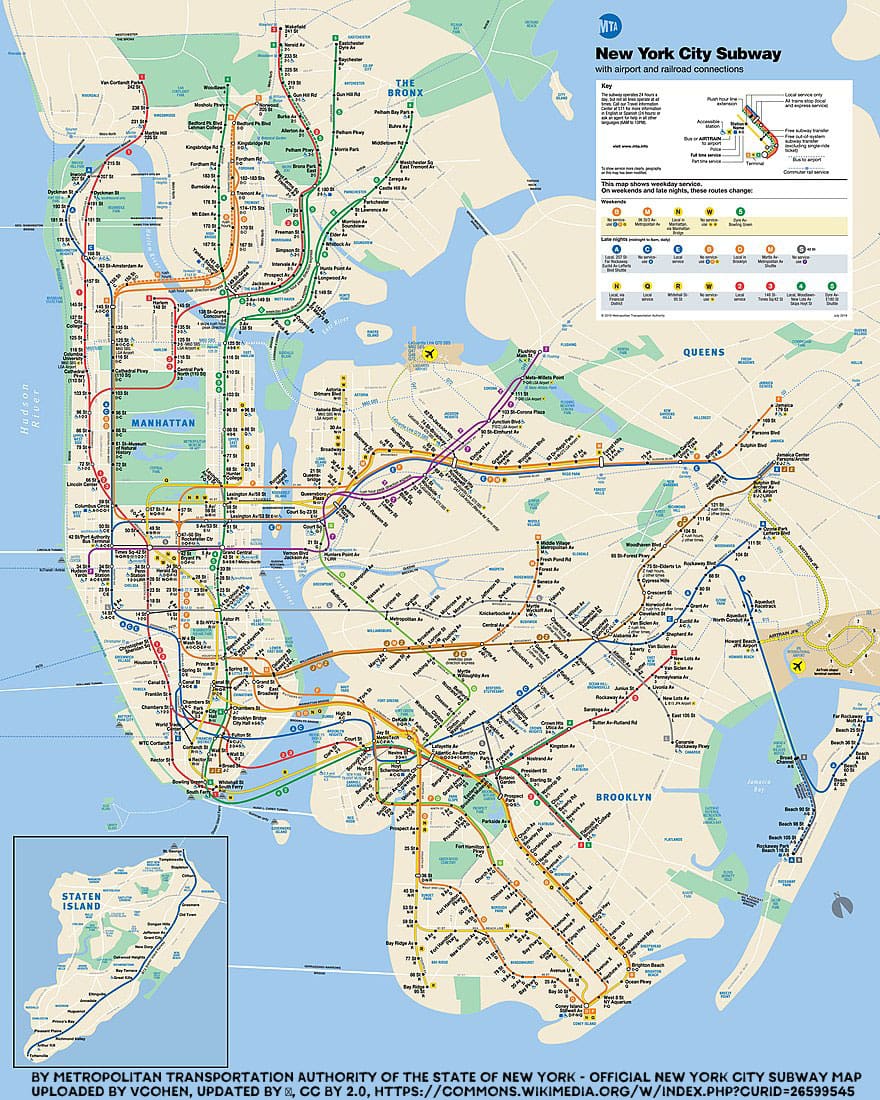A tales of two maps
Look at these two maps of New York City. One is a 17th-century map of what is today lower Manhattan. Note the large unsettled territory that today constitutes the greater part of New York City. The other map illustrates the 21st-century underground subway system. Are these maps accurate? Useful? Both were “accurate” at the time and somewhat useful in the light of the needs of the time.
The first is accurate according to the then best available knowledge and so might have been helpful to the people of the 17th century who had access to maps. But natives probably had no need of a map to visit a neighbor who was sick. They knew the terrain from personal observation.
The second is accurate… for today. But it might not be of much help to a visitor to New York today. It is focused on subways, an underground transport system. This is helpful to those familiar with city culture and subways but bewildering to those from a more simple rural culture whether in another country or sections of our own country.
Are we using old or irrelevant maps?
What has this got to do with our “ministerial maps”?
As followers of Vincent and Louise, we have become very successful over the years in alleviating the direct spiritual and physical needs of the ‘forgotten’ people. We have clear mental maps of what those physical and spiritual needs are. In fact, the traditional spiritual and corporal works of mercy serve as our mental maps.
Today, are we aware that more is required in light of our growing awareness of the impact of systems and what is sometimes referred to as “being born on third base” or living in a system that favors some and disadvantages others?
Vincent often said we must not just give someone a fish to eat but to teach this person how to fish. An important insight! But what happens when a person has the skills but no access to the pond in which to fish? Such access today means access to education and access to digital technology such as cellphones and computers which are becoming necessary tools for human development.
Pope Francis specifically mentioned our need for new maps in his Christmas address to the Cardinals when he said
“in an age when it was easier to distinguish between two rather well-defined realities: a Christian world and a world yet to be evangelized. That situation no longer exists today… we need other ‘maps,’ other paradigms, to help us reposition our ways of thinking and our attitudes: we are not in Christian times, not anymore!”
“there is always the temptation to fall back on the past (also by employing new formulations), because it is more reassuring, familiar, and, to be sure, less conflictual. This too is part of the process and risk of setting in motion significant changes.[19]…
(We) need to be wary of the temptation to rigidity. A rigidity born of the fear of change, which ends up erecting fences and obstacles on the terrain of the common good, turning it into a minefield of incomprehension and hatred. Let us always remember that behind every form of rigidity lies some kind of imbalance. Rigidity and imbalance feed one another in a vicious circle. And today this temptation to rigidity has become very real.
Rediscovering aspects of Vincent’s approach
Pope John Paul almost 40 years ago reminded us of our heritage of understanding underlying causes and seeking long-term solutions. I think he refers to Vincent and his “radical” approach to the problems he faced 400 years ago.
Vincent in his time faced the problem of the poor preparation of clergy and the problems that arose from the lack of organization charity. He also recognized the neglect of women as a pastoral resource.
What did he do? He founded a network of seminaries dedicated to the formation of clergy. He fostered the involvement of laypersons when he asked his missioners to establish “Confraternities” in every parish where they preached. These organizations tapped the resources of laywomen and addressed the need to organize charity.
Updating our mental maps
- Does the spirit of the spiritual and corporal works of mercy need to be rethought in light of today’s landscape and systems?
- Are we aware of the changing landscape of poverty and new needs?
- Do we need to update our mental maps?







0 Comments